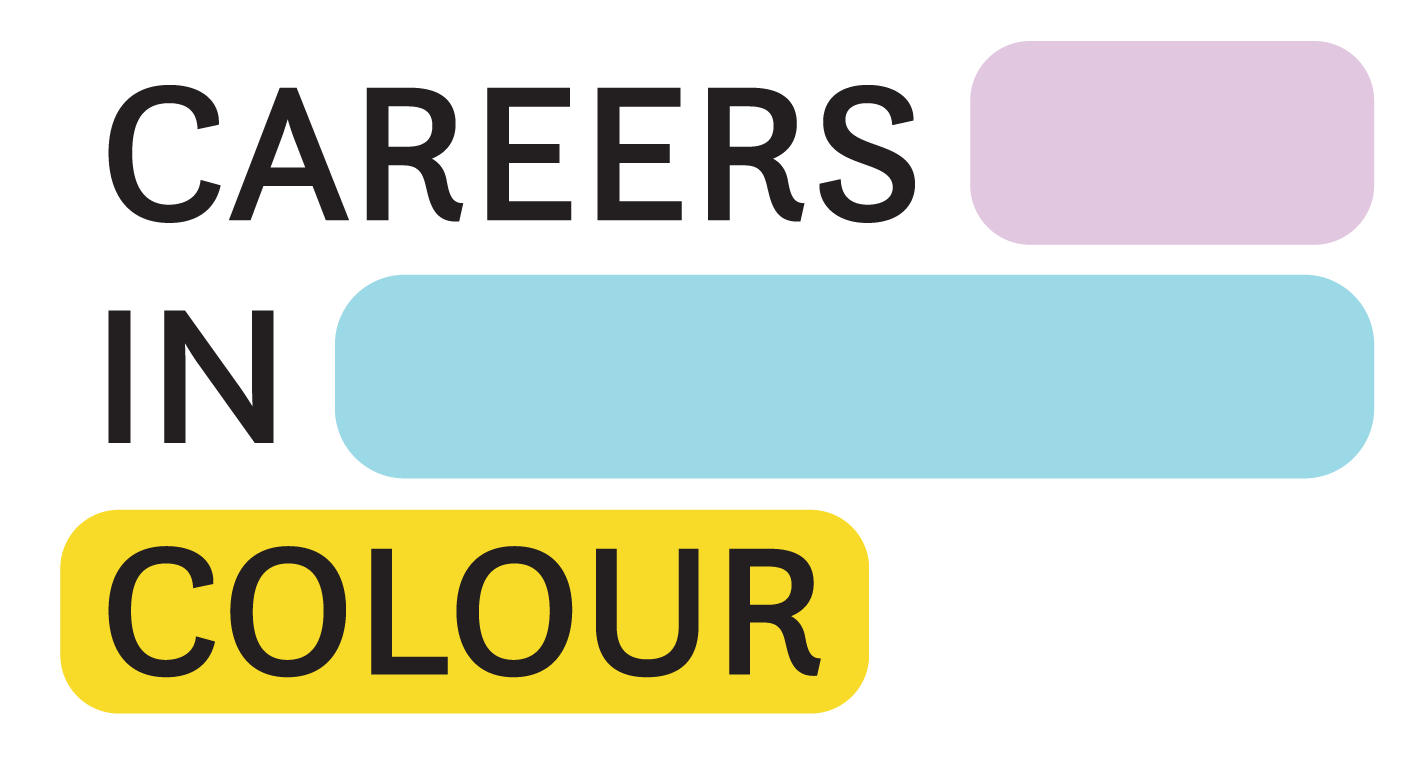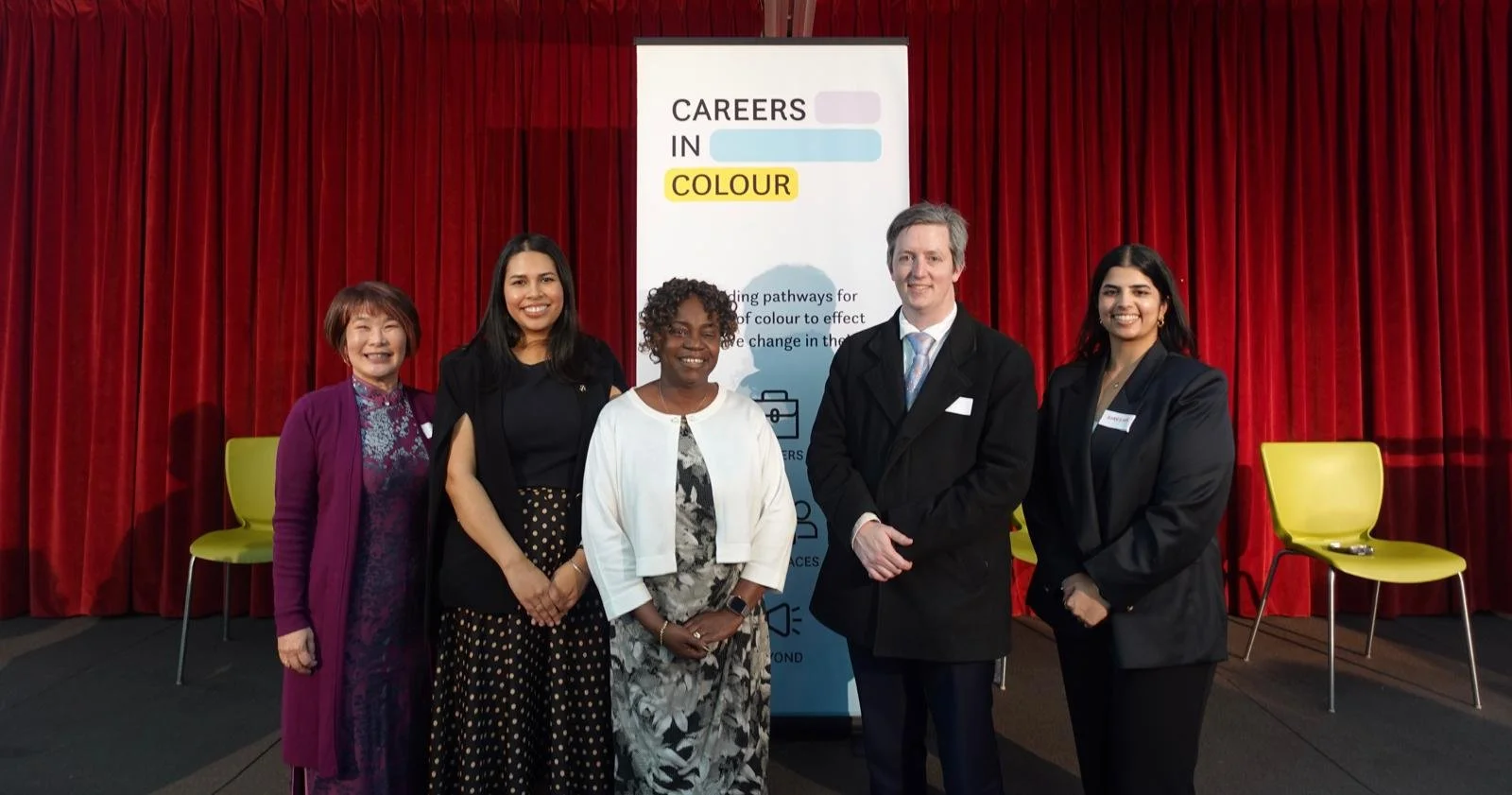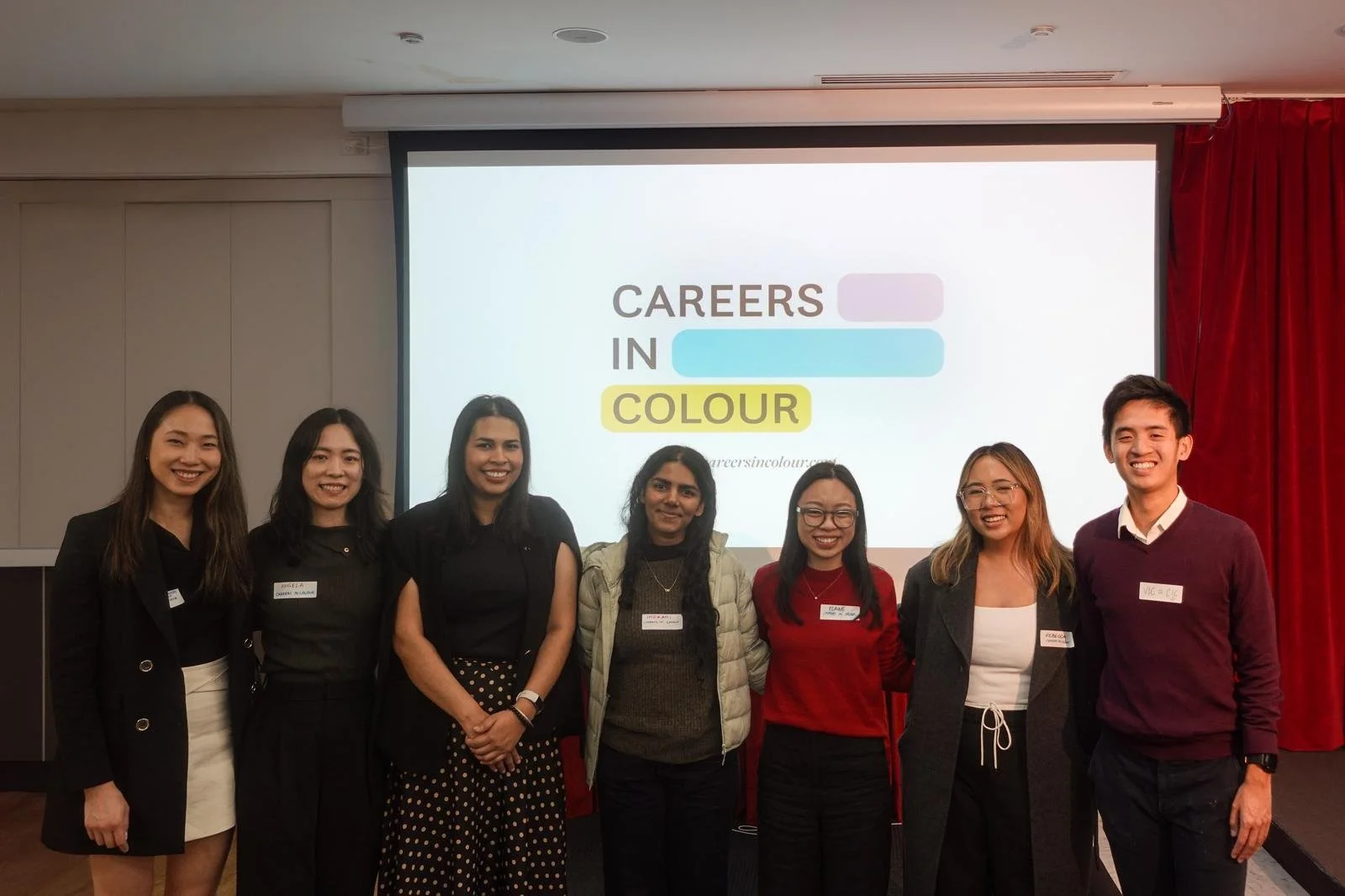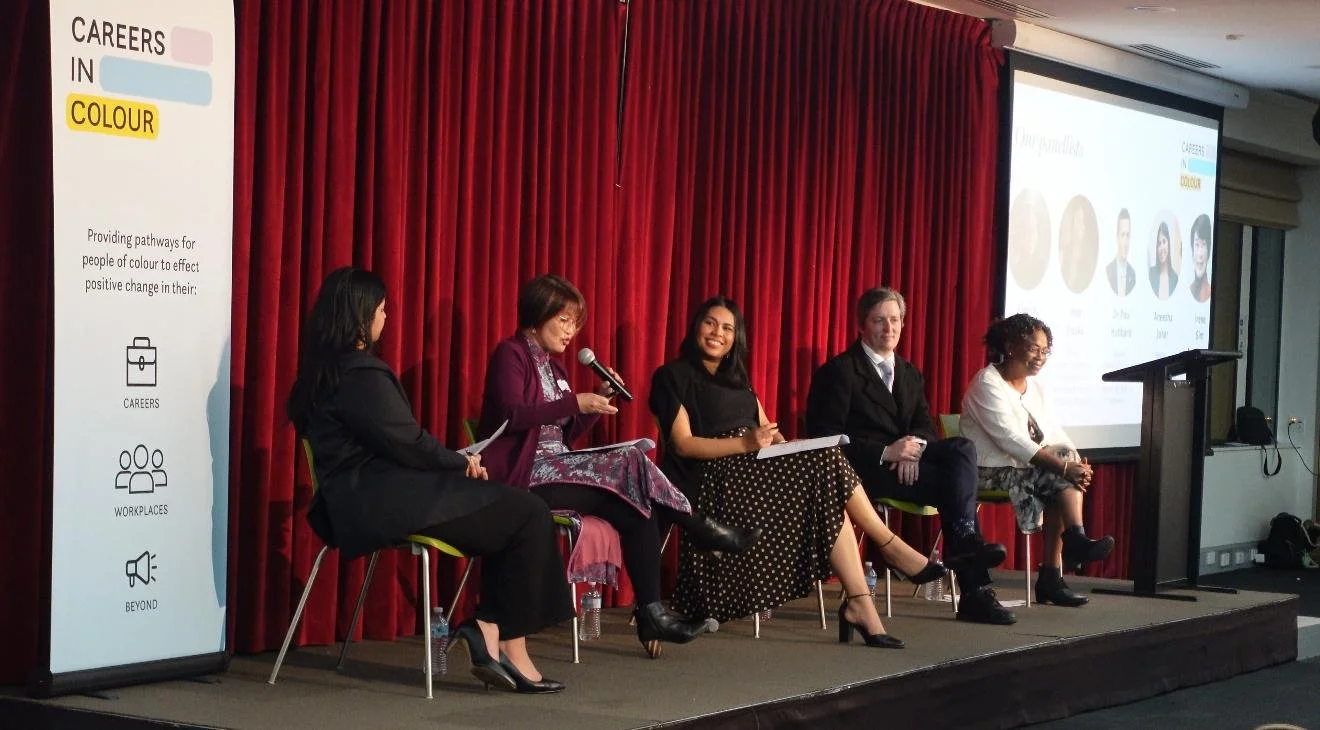From Advocacy to Action: Advancing Racial Diversity in the Public Sector
By Afeeya Akhand, Head of Research and Policy, Careers in Colour
On the evening of 27 August 2025, Careers in Colour (CiC) hosted its first in-person event in Canberra at the Theo Notaras Multicultural Centre. The evening brought together a community of public sector professionals, allies and advocates for a panel discussion delving into tangible recommendations for accelerating racial diversity across local, state and federal government agencies. The discussions took place at a particularly timely point for the Australian Public Service (APS), which is currently implementing actions including a cultural and linguistic diversity (CALD) target in the Senior Executive Service (SES) as part of its first-ever CALD Employment Strategy and Action Plan.
The event’s opening remarks were provided by Bec Yan, she/her (Head of Marketing and Community, CiC) and were followed by a keynote speech from Naa Opoku, she/her (Assistant Secretary and CALD Champion, Department of Infrastructure, Transport, Regional Development, Communications, Sport and the Arts, Australian Government).
In her keynote, Naa shared her lived and professional insights, drawing on her three-decade long career in the APS. As a first-generation migrant and often one of the few women of colour in senior leadership, she spoke candidly about both the challenges of underrepresentation and the positive changes she has witnessed. She highlighted the growth of her Department’s CALD Network from 40 to 200 members in just four years, creating not just events but safe spaces, advocacy and real cultural change. Looking ahead, she emphasised the importance of sustaining the momentum of change, reminding us that true progress requires all of us to act - by noticing who’s missing, challenging exclusion and mentoring others. Representation matters, she concluded, but it is inclusion that transforms.
Following her keynote speech, Naa joined the following fellow speakers for a panel discussion:
Dr Paul Hubbard, he/him (Assistant Secretary, Co-Head of AI CoLab, CALD Co-Champion, Department of Finance, Australian Government)
Aneesha Johar, she/her (Assistant Director, Department of Foreign Affairs and Trade, Australian Government)
Irene Sim, she/her (Executive Leadership Coach, Coaching Alliance Group)
In moderating the panel discussion, Afeeya Akhand, she/her (Head of Research and Policy, CiC), stressed the importance of focusing on actionable steps for advancing racial diversity rather than dwelling on the issue. CALD underrepresentation in leadership as well as experiences of discrimination and racism have already been extensively examined in other events and research, including through an ANU study about promotion prospects in the APS.
Panellists shared a range of tangible action points for advancing racial diversity in the public sector including the importance of leadership targets and quotas. Although some public servants may perceive targets and quotas to be at odds with merits-based hiring, as seen through the APS’s implementation of a target for 24% CALD leadership in the SES, the panel stressed that such mechanisms are designed to ensure that the workforce mirrors the broader community. Securing a role through a target or quota is only the first step - success still requires hard work and performance and is an opportunity to prove one’s value while also dismantling systemic barriers.
Panellists also offered a range of recommendations for how all audience members, regardless of seniority, can advance racial diversity within their respective day-to-day work environments. For allies, stepping up instead of standing by was the key point that was reiterated. Being an ally is more than a label, it’s about everyday actions that create genuine change including by actively speaking up about problematic behaviours such as racial microaggressions. As highlighted by Aneesha, advancing racial diversity shouldn’t solely be a responsibility for people of colour.
For people of colour, panellists highlighted the importance of overcoming imposter syndrome. Many people of colour experience self-doubt in the work environment, especially when there are few existing CALD role models in leadership positions. Panellists offered suggestions for overcoming imposter syndrome, including Irene’s recommendation for people of colour to have a “brag file” of achievements to remind themselves of their professional achievements and worth.
Embracing authenticity was another recommendation made by panellists. Although it can be very easy for people of colour to conform to Eurocentric norms of professionalism, such as through clothing and hairstyle choices, panellists emphasised the importance of ensuring that people of colour don’t shrink back from their cultural identity. To create a more culturally safe workplace where individuals are actively empowered to bring their authentic selves to work, people of colour need to play an active role in educating allies. Instead of relying on online training courses like cultural competency, face-to-face interactions with allies, including through reverse mentoring, are the best way to challenge deep-set norms about professionality.
Ultimately, the evening underscored that racial diversity in the public sector is a shared responsibility for both allies and people of colour to prioritise. When embraced fully, racial diversity makes our public institutions stronger, fairer and more representative.



